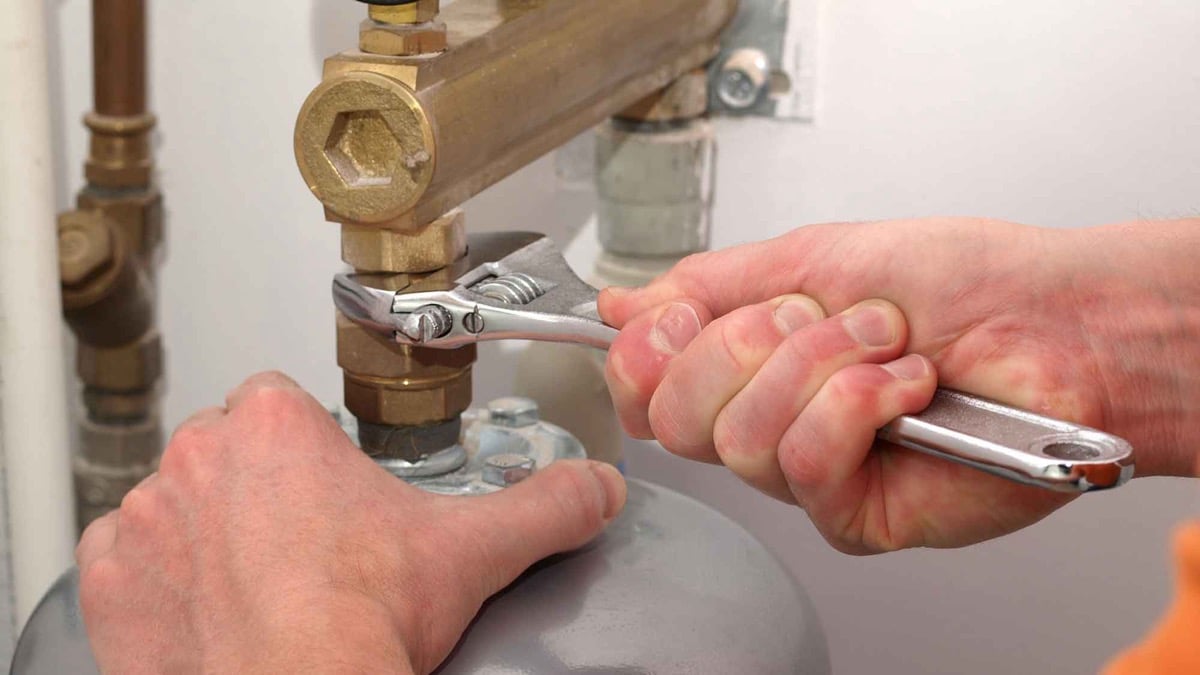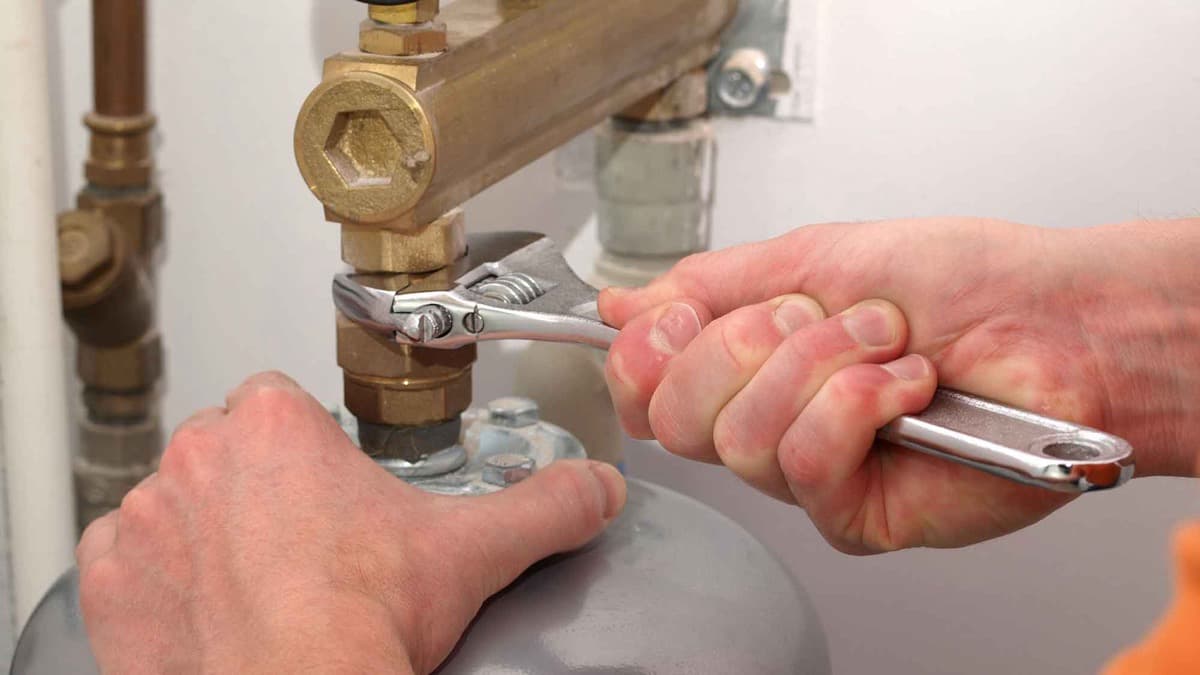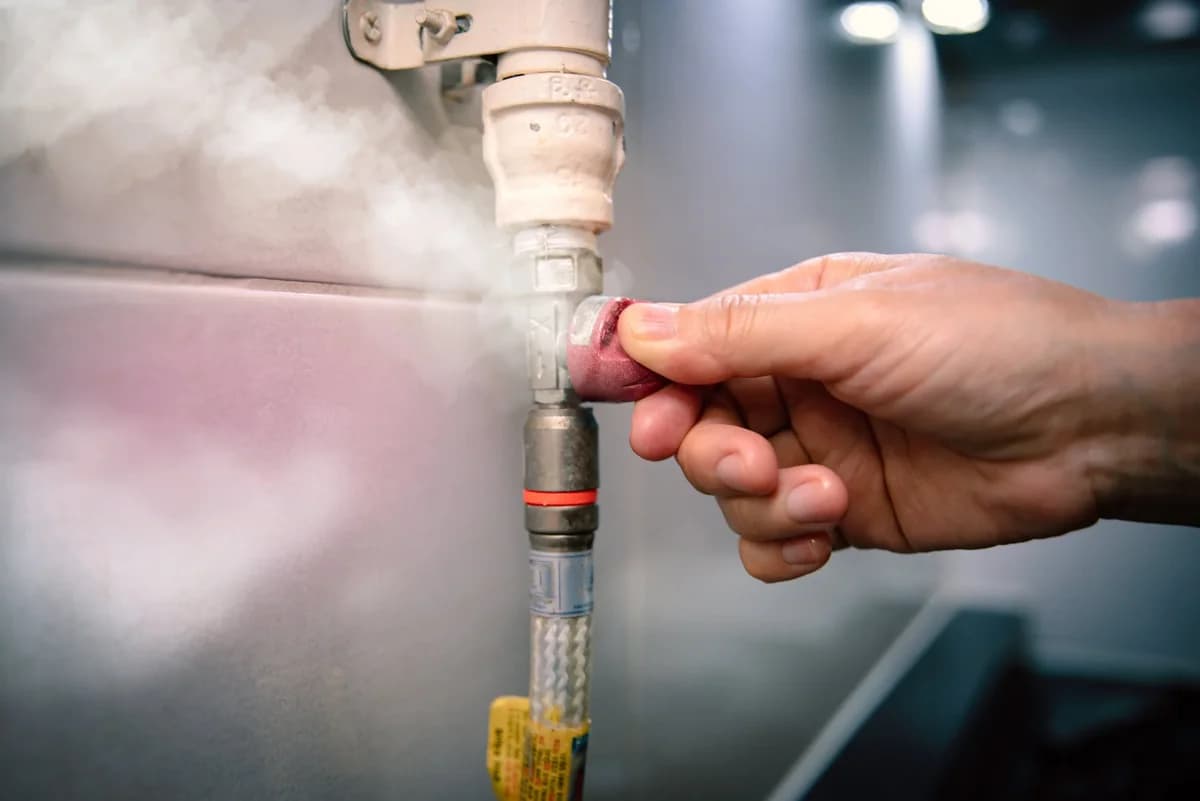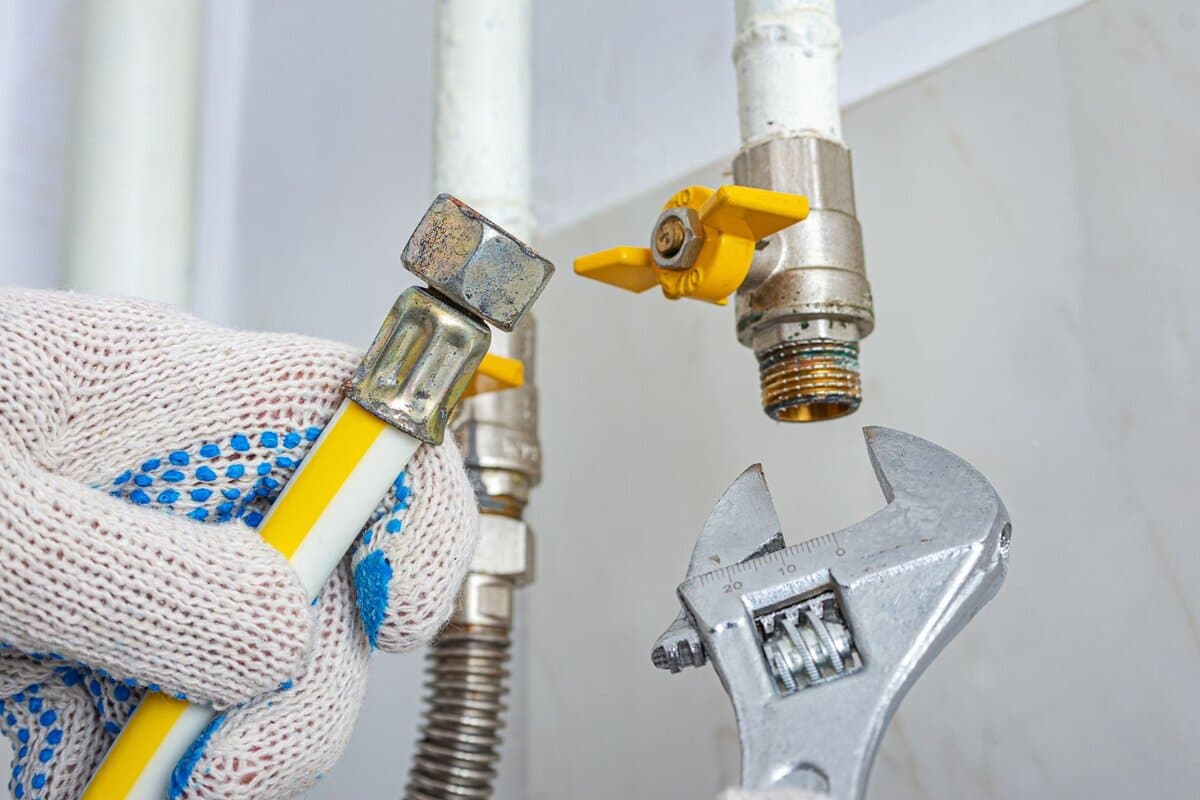
Emergency Gas Leak Repairs Sydney
Protect your home or business with rapid gas leak repairs from Panther Plumbing Group. We isolate, repair, and certify gas systems across Sydney 24/7. From pipe bursts to regulator failures, our licensed gas fitters deliver same-day repairs with full compliance certification.
Emergency Repair Expertise
On-Site Repairs
Damaged pipes, regulators, and appliances repaired or replaced immediately
Safety Protocols
Immediate isolation, ventilation, and area securing before repairs commence
Pressure Tested
Every repair pressure tested and leak checked before restoration
Certified Compliant
Certificates of Compliance provided for insurance and records
24/7 Emergency Gas Leak Repairs—Fast, Safe, Certified
Gas leaks demand immediate professional repair—delays create explosion risks, property damage, and life-threatening situations. Panther Plumbing Group's licensed gas fitters respond 24/7 across Sydney with fully stocked emergency vehicles carrying comprehensive pipe materials, regulators, fittings, and brazing equipment. We isolate leaking systems immediately, complete repairs on-site during the same callout, pressure test to confirm leak-free integrity, and provide NSW Fair Trading compliance certification for insurance and records.
Same-Day Emergency Repairs
85%+ of gas leaks repaired during initial callout. Vehicles stocked with copper pipe (15-50mm), TracPipe CSST, brass fittings, regulators, and brazing equipment enabling immediate on-site repairs without waiting for materials.
All Leak Types Repaired
Corroded pipes, damaged underground lines, failed regulators, loose appliance connections, and earthquake damage. Licensed for natural gas and LPG systems across residential, commercial, and industrial properties throughout Sydney.
Pressure Testing & Safety
Every repair pressure tested to 7 kPa for 15+ minutes confirming leak-free systems. Electronic leak detection at all joints guarantees complete repairs. Properties secured and ventilated before work commences protecting occupant safety.
Compliance Certification
Certificate of Compliance (Form 71) provided for every repair and lodged with NSW Fair Trading. Essential documentation for insurance claims, strata records, and property compliance. Detailed repair reports with photos and test results.
Common Gas Leak Emergencies We Repair
Rapid response for all gas leak scenarios requiring immediate attention
Damaged Pipes From Excavation
Construction, landscaping, or post-hole digging accidentally striking buried gas lines creates immediate danger. We attend rapidly, isolate damaged sections, assess pipe integrity throughout affected area, replace damaged pipes with protective-coated copper or TracPipe, pressure test repairs, backfill safely, and coordinate with gas network operators for meter isolation if main supply damaged.
Regulator Failures
Gas pressure regulators reduce supply pressure to safe appliance levels. Failed regulators cause over-pressure damaging appliances or under-pressure preventing operation. We replace failed regulators with correctly-sized units, install additional pressure relief valves if required, verify downstream pressures at all appliances, and test safety shut-off functionality protecting system integrity.
Appliance Connection Leaks
Flexi hoses, rigid connections, and bayonet fittings connecting appliances deteriorate over time. Worn connections leak at joints requiring immediate replacement. We install approved flexible connectors or rigid pipework as appropriate, ensuring correct length preventing stress, fit isolation valves for appliance servicing access, pressure test connections, and verify appliance operation after restoration.
Corroded Underground Lines
Underground gas pipes corrode from moisture, reactive soils, and galvanic action between dissimilar metals. Corrosion creates pinhole leaks or catastrophic failures requiring pipe replacement. Using tracer gas location, we excavate precisely at leak points, replace corroded sections with protective coatings, install cathodic protection if galvanic corrosion present, and backfill with sand protecting new pipes.
Mechanical Damage
Renovation works, cabinetry installation, or drilling accidentally piercing concealed gas pipes requires emergency isolation and repairs. We locate exact damage using thermal imaging or tracer gas, create minimal access openings, cut out damaged sections, install new pipe runs rerouted away from future damage risk, and restore wall/ceiling surfaces or coordinate with builders for reinstatement.
Earthquake or Storm Damage
Seismic activity or severe weather causing ground movement or building shifts can fracture rigid gas pipework. Post-event inspections identify stressed joints, cracked pipes, or pulled fittings. We replace damaged sections with flexible TracPipe CSST absorbing future movement, install seismic shut-off valves in high-risk areas, and pressure test entire systems confirming integrity after natural disasters.
Comprehensive Gas Leak Repair Solutions
Professional repairs for all gas system components and configurations
Pipe Replacement - Copper
Hard-drawn or annealed copper pipe installations for gas services. We replace damaged sections using appropriate diameter pipes (15mm to 50mm), create brazed joints stronger than pipe itself, install with correct gradients for condensate drainage, protect from mechanical damage with sleeves through walls, and surface-mount with appropriate brackets and spacing meeting AS 5601.
Pipe Replacement - Galvanized Steel
Threaded galvanized steel installations for commercial and industrial applications requiring robust exposed pipework. Replace corroded sections with new schedule 40 steel pipe, thread connections professionally preventing weak joints, apply thread sealant rated for gas service, install unions for future maintenance access, and protect against corrosion with appropriate coatings for environment.
TracPipe CSST Installation
Corrugated stainless steel tubing provides flexible gas piping reducing joint count and installation time. Ideal for retrofit applications, seismic zones, and difficult routing situations. We install TracPipe with approved AutoFlare fittings, protect from lightning strike damage with bonding, support at required intervals, and shield from UV exposure in outdoor applications.
Regulator Replacement
Install correctly-sized pressure regulators maintaining safe, consistent appliance pressures. Replace failed units with regulators matched to gas type (natural gas or LPG), downstream load requirements, and environmental conditions. Verify inlet pressures acceptable, set outlet pressures to appliance specifications, install pressure relief venting safely, and test under full load conditions.
Isolation Valve Upgrades
Install or replace isolation valves providing system control and safety. Position valves at meter, individual appliances, and strategic locations throughout system. Fit ball valves for quarter-turn operation, install earthquake shut-off valves in seismic zones, add emergency shut-off valves at building entry, and clearly label all valves identifying function and controlled area.
Flexi Hose Replacement
Flexible gas hoses connecting appliances deteriorate after 5-10 years requiring replacement. Install approved gas-rated flexi hoses with correct length preventing stress or kinking, fit with bayonet or threaded connections as appropriate, position away from heat sources and sharp edges, label with installation date for future replacement tracking, and pressure test connections confirming leak-free installation.
Emergency Gas Leak Repair Process
Systematic approach ensuring safety, quality, and compliance
Emergency Isolation & Safety
Upon arrival, first priority is securing the site. We shut off gas supply at meter or affected isolation valves, ventilate area opening windows and doors removing accumulated gas, establish exclusion zones preventing ignition sources, verify no occupants show gas exposure symptoms, and brief property occupants on safety protocols during repairs. Electronic gas detectors continuously monitor atmosphere confirming safe working conditions.
Comprehensive Leak Assessment
Using leak detection findings or conducting additional surveys, we identify all leak locations throughout system—not just obvious failures. Pressure testing isolated sections identifies additional weak points requiring attention. Thermal imaging reveals concealed damage. We photograph leak sites, document causes (corrosion, mechanical damage, poor installation, component failure), assess extent of damage, and determine optimal repair strategy balancing safety, cost, and longevity.
Damage Evaluation & Planning
Determine whether to repair damaged components or replace entire sections. Corroded pipes receive section replacement rather than patch repairs preventing recurring failures. Failed appliance connections get new flexible hoses or rigid pipework. Damaged regulators are always replaced, never repaired. We plan pipe routes, select appropriate materials (copper, steel, TracPipe), calculate required quantities, and verify our vans stock necessary materials or arrange urgent delivery.
Pipe Removal & Preparation
Cut out damaged pipe sections using pipe cutters or reciprocating saws depending on material and accessibility. For copper, we deburr cut ends and clean with emery cloth preparing for brazing. Galvanized steel receives thread cutting for screwed fittings. TracPipe is measured precisely and cut with manufacturer-approved cutters. Old fittings, deteriorated components, and corroded sections are completely removed preventing contamination of new installations.
New Pipe Installation
Install replacement pipes using methods appropriate to material and application. Copper pipes are brazed using silver solder and oxy-acetylene torches—joints stronger than pipe prevent future failures. TracPipe press fittings are hydraulically crimped to manufacturer torque specifications. Galvanized steel is threaded, joined with approved sealant, and tightened preventing leaks. All pipes installed with correct support spacing, protected from damage, and routed avoiding heat sources.
Component Installation
Fit new regulators, isolation valves, test points, and appliance connections as required. Regulators are sized for downstream loads and installed with inlet/outlet orientations correct. Isolation valves positioned for accessible operation and clearly labelled. Flexi hoses installed with appropriate length preventing stress. All components from approved manufacturers meeting Australian Standards. Fittings hand-tightened then torqued to specifications preventing over-tightening damage.
Pressure Testing & Leak Detection
Before restoring gas supply, entire repaired system is pressure tested to minimum 7 kPa for 15+ minutes. Digital manometers monitor pressure—any drop indicates leaks requiring rectification. After confirming pressure hold, we apply electronic leak detectors to every new joint, connection, and fitting. Soapy water application provides visual confirmation. Only when zero leaks are detected and pressure holds steady do we proceed to restoration—no compromises on safety.
System Restoration & Certification
Gas supply is gradually restored while monitoring for issues. We purge air from repaired sections, verify operating pressures at all appliances match specifications, test appliance ignition and burner characteristics, confirm safety controls function correctly, and demonstrate system operation to property owner. Certificate of Compliance documenting all repairs, materials used, test results, and installer details is issued for insurance, records, and future reference.
Gas Repair Materials & Installation Methods
Industry-leading materials and techniques for permanent repairs
Silver Solder Brazing
Copper gas pipe joints are brazed using silver solder alloys and oxy-acetylene torches. Brazing creates joints stronger than the pipe itself—essential for concealed installations within walls and ceilings. We heat pipes to precise temperatures (around 600°C), apply flux preventing oxidation, and flow silver solder creating hermetic seals. Proper brazing technique prevents weak joints ensuring decades of leak-free service.
Press-Fit Systems
Hydraulic press tools join TracPipe CSST and copper press-fit systems faster and safer than traditional methods. Press fittings eliminate open flames ideal for occupied buildings and fire-sensitive environments. Hydraulic tools crimp fittings to exact specifications—visual indicators confirm correct pressing. Press systems create reliable, code-approved connections perfect for emergency repairs and retrofit installations.
Threaded Galvanized Steel
Commercial and industrial installations often use galvanized steel for durability and fire resistance. We cut threads using professional pipe threaders ensuring clean, complete thread profiles. Threads are sealed with PTFE tape and pipe dope rated for gas service—not standard plumbing compounds. Unions installed at strategic locations allow future disassembly for maintenance. Proper threading technique prevents weak joints and premature failures.
TracPipe AutoFlare Fittings
TracPipe corrugated stainless steel tubing uses proprietary AutoFlare fittings creating secure connections. Fittings are pressed onto pipe ends using calibrated tools—audible clicks confirm proper seating. No threading, brazing, or soldering required reducing installation time significantly. TracPipe flexibility reduces joint count compared to rigid pipe—fewer joints mean fewer potential leak points. Ideal for seismic zones absorbing building movement.
Protective Coatings & Sleeves
Underground gas pipes receive protective coatings preventing corrosion from moisture and reactive soils. We wrap pipes with denso tape or install pre-coated copper preventing galvanic corrosion. Pipes passing through concrete or masonry receive protective sleeves preventing abrasion and allowing expansion. Sleeves are sealed at both ends preventing moisture ingress while allowing pipe movement. Proper protection extends underground pipe life from decades to indefinite.
Earthquake Shut-Off Valves
In seismic risk areas, we install earthquake shut-off valves automatically closing gas supply when ground acceleration exceeds safe thresholds. Valves contain weighted triggers releasing during seismic activity—spring-loaded closure mechanisms isolate gas instantly. Manual reset required after activation ensuring conscious restoration decision. Earthquake valves provide critical safety protection in areas prone to tremors preventing gas-fed fires after seismic events.

Why Material Quality Matters
Gas leak repairs demand premium materials and expert installation—shortcuts create recurring failures and safety risks. We use only approved gas-rated materials from reputable manufacturers, apply installation techniques exceeding AS 5601 minimum standards, and pressure test every repair confirming permanent leak elimination. Emergency repairs receive the same quality standards as scheduled installations because your safety never compromises.
Gas Leak Repair Costs Sydney
Transparent emergency repair pricing with no hidden charges
Basic Leak Repairs
Simple repairs including flexi hose replacement, tightening loose fittings, replacing worn washers, or repairing accessible above-ground pipe joints. Includes leak detection, isolation, repair completion, pressure testing, and compliance certification. Most straightforward repairs completed within 1-2 hours.
Pipe Section Replacement
Replace damaged pipe sections up to 6 metres including cutting out corroded or damaged pipes, installing new copper, steel, or TracPipe, brazing or press-fitting joints, pressure testing system integrity, and compliance documentation. Price varies by pipe diameter, material, and accessibility. Underground sections priced separately.
Emergency Callout & Repairs
After-hours, weekend, or public holiday emergency attendance including rapid dispatch, safety assessment, leak isolation, temporary or permanent repairs as appropriate, pressure testing, and safety certification. Callout fee included in repair pricing. Priority response for severe leaks, gas odours, or symptomatic occupants.
Regulator & Valve Replacement
Replace failed pressure regulators, isolation valves, or safety shut-off valves. Includes removing old components, installing correctly-sized replacements, verifying downstream pressures at appliances, testing safety functions, system pressure testing, and certification. Emergency and LPG regulators priced at upper range.
Extensive Repairs & Renovations
Major repair projects including multiple leak locations, underground pipe replacements requiring excavation, complete regulator station rebuilds, or post-damage system restoration. Includes comprehensive leak detection, isolation, repair or replacement of all affected components, pressure testing, backfilling and reinstatement, and full certification package. Quoted based on scope.
What's Included In Every Repair Service
- ✓ 24/7 emergency response availability across Sydney
- ✓ Licensed gas fitter with 10+ years repair experience
- ✓ Comprehensive van stock for immediate repairs
- ✓ Safety isolation and ventilation protocols
- ✓ Professional-grade materials and components
- ✓ Complete pressure testing to AS 5601 standards
- ✓ Electronic leak detection verification
- ✓ Certificate of Compliance for all repairs
- ✓ Workmanship warranty on installations
- ✓ Insurance-formatted documentation when required
Should You Repair Or Replace Your Gas System?
Making informed decisions about gas leak repairs versus system upgrades
When To Repair
Isolated Component Failures: Single failed regulators, worn flexi hoses, damaged pipe sections, or leaking fittings warrant targeted repairs when rest of system is sound. Repairing individual components is cost-effective and maintains existing installations functioning properly.
Mechanical Damage: Accidental damage from excavation, renovation, or external forces creating localized failures. Surrounding system unaffected receives section replacement restoring integrity without wholesale replacement. Most mechanical damage repairs completed same-day with minimal disruption.
Modern Systems: Gas installations less than 15 years old using copper or TracPipe with isolated failures benefit from repairs. System design meets current standards—replacing failed components maintains compliance without complete reinstallation. Regular maintenance extends system life preventing cascading failures.
When To Replace
Widespread Corrosion: Multiple leaks from corroded galvanized steel or deteriorated copper indicate system-wide degradation. Patching individual leaks provides temporary relief—corrosion continues throughout system creating recurring failures. Complete replacement with protective-coated materials prevents ongoing issues and emergency callouts.
Aged Installations: Gas systems over 30 years old using outdated materials (early galvanized steel, unprotected underground copper) approach end of service life. Repair costs accumulate—replacement with modern materials (TracPipe, protective-coated copper) provides long-term value, improved safety, and better appliance performance.
Non-Compliant Systems: Installations not meeting current AS 5601 standards discovered during leak investigations warrant upgrades. Missing isolation valves, inadequate pipe sizing, improper ventilation, or unsafe appliance connections require systematic replacement ensuring full compliance, insurance validity, and occupant safety.
Our Honest Assessment Process
During emergency repairs, we assess entire gas systems—not just immediate leak locations. Our gas fitters identify underlying issues, system age, compliance status, and potential future failures. We provide honest recommendations balancing immediate safety, long-term reliability, and budget considerations.
If repairs will cost over 60% of replacement value, or if we identify multiple deteriorating components indicating imminent failures, we recommend system upgrades. Conversely, when isolated repairs restore safe, compliant operation, we complete targeted work without unnecessary replacement. Our priority is your safety and long-term satisfaction—not inflated project values.
Gas Leak Repair Case Studies
Real Sydney emergencies showing our rapid repair expertise and problem-solving
Eastern Suburbs Emergency Pipe Burst
Double Bay, Sydney
The Emergency
Homeowner woken 3am by hissing sound and strong gas odour. Main gas line to house had ruptured at corroded underground joint flooding property with gas. Family evacuated immediately. Emergency callout required rapid response preventing gas accumulation reaching explosive concentrations or migrating into neighbouring properties.
Our Repair Solution
Gas fitter arrived 28 minutes after emergency call. Isolated gas at meter immediately, established ventilation fans extracting gas from affected areas, used thermal imaging identifying ruptured joint location 2 metres from house. Hand-excavated around leak preventing spark hazards from machinery. Replaced corroded galvanized steel section with protective-coated copper pipe, pressure tested thoroughly.
The Result
Family returned home 4.5 hours after initial call with gas safely restored. Prevented potential explosion or property damage from gas accumulation. Thermal imaging inspection identified two additional weak joints—scheduled replacement during daylight preventing future failures. Comprehensive incident report provided for insurance. Homeowner relieved rapid response prevented disaster.
North Shore Underground Line Replacement
Mosman, Sydney
The Emergency
Gas leak detected in underground line servicing outdoor kitchen and pool heater. Landscaped garden above suspected leak location—excavation would destroy established plants and paving costing $15,000+ to reinstate. Required precise leak location minimizing excavation and garden damage while ensuring permanent repair.
Our Repair Solution
Pressure tested outdoor gas line confirming significant leak. Injected tracer gas into isolated section—detector identified exact leak location saving exploratory excavation. Hand-dug 1.2m² access pit around corroded elbow joint. Replaced entire outdoor run from house to outdoor kitchen (12 metres) with TracPipe in protective conduit preventing future corrosion. Backfilled carefully preserving plant roots.
The Result
Leak repaired with minimal garden damage—small access pit versus 12 metre trench if leak location was guessed. Underground pipe upgraded to corrosion-proof TracPipe eliminating recurring failure risk. Garden landscaper reinstated disturbed area for $800 versus $15,000 complete restoration. Homeowner delighted with precision approach preserving valuable landscaping.
CBD Restaurant Emergency Repair
Sydney CBD
The Emergency
Busy restaurant discovered gas leak Saturday morning 90 minutes before lunch service. Commercial kitchen regulator failed causing over-pressure and subsequent leak at cooktop connection. Restaurant fully booked—closure would cost $8,000+ in lost revenue and reputation damage. Required immediate repair restoring kitchen operations without service cancellation.
Our Repair Solution
Priority emergency dispatch—gas fitter arrived 25 minutes after call. Isolated failed regulator, verified all downstream appliances undamaged by over-pressure event. Replaced regulator with commercial-grade unit, installed additional pressure relief valve preventing repeat failures, tested all six appliances confirming proper operation, pressure tested complete system. Obtained emergency inspection approval from building certifier.
The Result
Restaurant opened for lunch service on time—zero revenue loss or customer cancellations. All kitchen appliances operational and certified compliant. Building certifier approved emergency works immediately given thorough testing and documentation. Owner praised rapid response saving Saturday service. Scheduled follow-up installed backup regulator system preventing future single-point failures.
Inner West Strata Building Repair
Newtown, Sydney
The Emergency
12-unit apartment building with gas leak in common property riser pipe serving all apartments. Leak detected in ceiling space between first and second floors requiring access through occupied units. Strata urgently required repairs minimizing disruption to residents while ensuring safety and insurance compliance.
Our Repair Solution
Coordinated with strata manager arranging access to affected units. Isolated common property gas riser at ground floor—individual unit supplies remained isolated during repairs. Created access through first floor laundry ceiling, identified pinhole leak in corroded vertical riser. Replaced entire 6-metre riser section with TracPipe reducing future corrosion risk. Pressure tested system, provided comprehensive documentation for strata records and insurance.
The Result
All 12 units restored gas service same day. Residents experienced 6-hour service interruption versus days if access coordination delayed or multiple visits required. Strata manager received detailed report documenting repairs, compliance certification, and recommendations for remaining risers approaching end of life. Insurance claim approved based on thorough documentation. Committee scheduled preventative riser replacement program.
Gas Leak Repair Safety Protocols
Ensuring safe repairs and full regulatory compliance
Emergency Isolation Procedures
First action upon discovering gas leaks is immediate isolation at meter or cylinder valve. All gas fitters carry master keys for meter boxes accessing isolation valves quickly. For severe leaks where main isolation is inaccessible or unsafe, we contact gas network operators (Jemena, APA Group) requesting emergency supply isolation at street mains.
Individual appliance isolation valves allow sectional shutdown maintaining gas supply to unaffected areas during repairs. Commercial properties with multiple gas services benefit from strategic isolation valve placement—we install additional isolation points during repairs enabling future maintenance without building-wide shutdowns.
After isolation, we ventilate affected areas removing accumulated gas before commencing repairs. Electronic gas detectors continuously monitor atmosphere during work confirming safe working conditions. Only when gas concentrations fall below 10% of Lower Explosive Limit do repairs commence—zero tolerance for working in explosive atmospheres.
Post-Repair Testing Requirements
Australian Standard AS 5601 mandates pressure testing all gas installations and repairs. We pressurize repaired sections to minimum 7 kPa (natural gas) or 3.5 kPa (LPG) for 15+ minutes minimum. Digital manometers monitor pressure continuously—any drop indicates leaks requiring immediate rectification. Only when pressure holds steady do we proceed to restoration.
After successful pressure testing, electronic leak detectors verify zero gas emissions at every new joint, connection, and fitting throughout repaired sections. Soapy water application provides additional visual confirmation. We test at operating pressures simulating real-world conditions—some leaks only manifest under dynamic flow conditions.
Final testing includes verifying correct operating pressures at all appliances (measured at appliance connection points), testing ignition systems, observing burner flame characteristics, and confirming safety controls function properly. Comprehensive test documentation forms part of compliance certificates protecting installers and property owners legally.
Compliance Certification
Every gas repair in NSW requires Certificate of Compliance for Gasfitting (Form 71) issued by licensed gas fitter performing work. We lodge certificates with NSW Fair Trading within 48 hours of job completion and provide copies for your records. Certificates detail work performed, materials used, test results, installer license details, and compliance confirmation.
For insurance claims, we provide additional documentation including before/after photos, thermal images showing leak locations, pressure test charts, detailed cause analysis, and repair specifications. This comprehensive documentation expedites claims processing and demonstrates professional, compliant repairs protecting your insurance validity.
Strata properties and commercial buildings receive formal reports formatted for body corporate committees, building managers, and regulatory authorities. Our reports include safety assessments, compliance status, recommendations for preventative maintenance, and staged replacement programs for aging components approaching end of service life.
Insurance Coordination
Gas leak damage often involves insurance claims for property restoration, temporary accommodation, or business interruption. We provide detailed documentation supporting claims including incident timelines, cause analysis, repair specifications, materials costs, labour hours, and compliance certification. Our reports are accepted by all major insurers and loss adjusters.
For significant incidents, we liaise directly with insurance assessors, arranging site inspections, answering technical queries, and providing expert opinions on damage causation and appropriate repair methodologies. This coordination expedites claims approval and prevents disputes over repair scope or methodology.
Emergency repairs preventing further damage are covered by most policies regardless of pre-approval. We document emergency circumstances, explain why immediate action was required, and demonstrate repairs met professional standards. Proper documentation protects your claim ensuring insurer acceptance of emergency repair costs incurred protecting property.
Gas Leak Repair FAQs
Common questions about emergency gas repairs and safety
Can you repair gas leaks on the spot?▼
How fast can you attend gas leak emergencies?▼
Do you work on LPG systems?▼
Will I receive a compliance certificate?▼
Can you liaise with my insurance company?▼
What causes gas pipes to leak?▼
How long do gas leak repairs take?▼
Should I repair or replace my gas system?▼
Do you provide emergency after-hours service?▼
Can you repair gas leaks in strata buildings?▼
Complete Gas Safety Solutions
Supporting services for safe, reliable gas systems

Gas Leak Detection
Find leaks early with advanced detection equipment before they become emergencies. Electronic sniffers, thermal imaging, and tracer gas technology.
Learn More
Gas Fitting
Install new appliances or upgrade pipework after repairs complete. Licensed gas fitters for all installation types with full certification.
Learn More
Emergency Plumbing
Call us for combined water and gas emergencies at any hour. 24/7 response throughout Sydney with comprehensive emergency services.
Learn MoreSydney Clients Trust Our Emergency Gas Repairs
See how our rapid response team restored safety and gas supply across Sydney
"Gas smell near hot water system. Panther Plumbing Group gave immediate response, located small leak at bayonet fitting, replaced faulty seal, and tested entire system. Safety first approach!"
"Tree root damaged underground gas line to our pool heater. Panther Plumbing Group excavated, replaced 4 metres of pipe, pressure tested, and backfilled in one day. Pool heater working perfectly. Professional job from start to finish!"
"Regulator failed on Sunday morning with family BBQ planned. Panther Plumbing Group's emergency callout had technician here in 90 minutes. Replaced regulator, tested all connections, certified compliant. Saved our lunch! Worth every cent of the emergency fee."
24/7 Gas Leak Repairs Across All Sydney Suburbs
Emergency gas fitters on call throughout Sydney metro and regional areas
Need Emergency Gas Leak Repairs?
Call Panther Plumbing Group for rapid gas leak repairs and safety certification anywhere in Sydney
